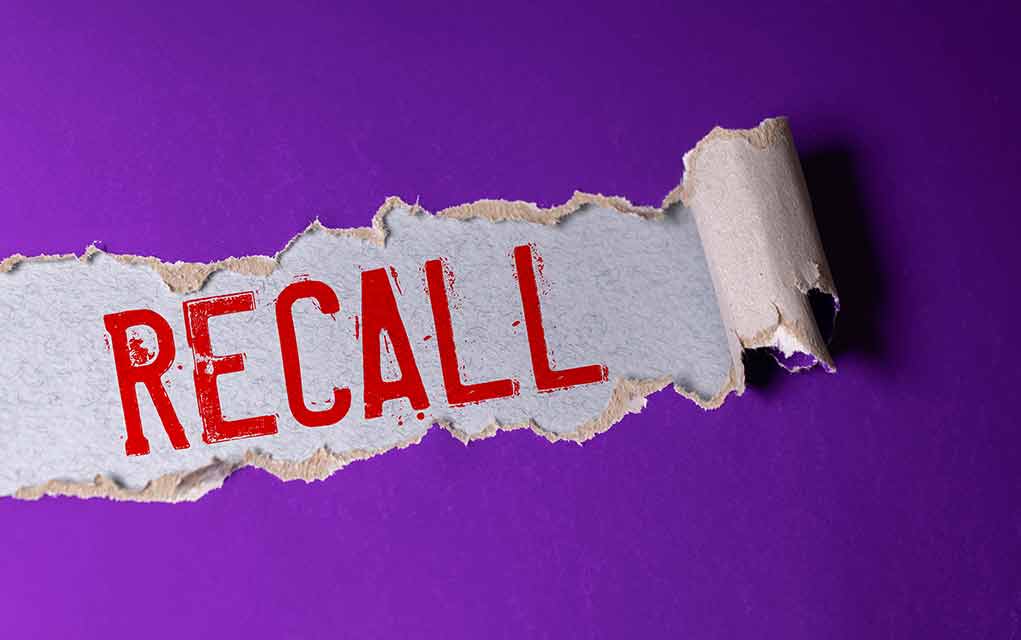
As Gordon Desserts recalls over 5,000 units of popular ice cream treats due to hidden allergens, consumers in four states must check their freezers immediately to avoid potentially dangerous reactions.
Key Takeaways
- Gordon Desserts (Mochidoki) has recalled 5,016 units of Sundae Shoppe Cookies and Cream Mochi Ice Cream due to undeclared wheat and soy allergens.
- The affected products were distributed to stores in Connecticut, Virginia, Ohio, and Pennsylvania with multiple lot codes between March and September 2025.
- This Class II recall indicates a lower risk of serious health consequences, but still presents danger to those with specific allergies.
- No illnesses have been reported yet, but consumers should return or discard affected products immediately.
- In a similar case, The Mochi Ice Cream Company recalled Peach Mango Sorbet nationwide after two allergic reactions were reported from undeclared egg content.
Undeclared Allergens Prompt Immediate Recall
Gordon Desserts, trading as Mochidoki, has initiated a significant recall of their Sundae Shoppe Cookies and Cream Mochi Ice Cream due to undeclared wheat and soy on product labels. The recall, which began on April 3, 2025, affects 5,016 shipping units that were distributed to retail locations across four states: Connecticut, Virginia, Ohio, and Pennsylvania. While the FDA has classified this as a Class II recall—indicating a lower probability of serious adverse health consequences—the presence of undisclosed allergens still poses a substantial threat to those with specific food sensitivities.
The affected products can be identified by their packaging: a 6-count, 7.5 oz package with cookies and cream mochi ice cream pieces in a plastic sealed tray inside a paper carton. Consumers should check for these specific lot codes: 32624, 34024, 01025, 03125, 05725, 06525, 08025, 08725, and 09225. This packaging error represents yet another instance of regulatory oversight failures that leave Americans vulnerable to preventable health risks. While federal agencies focus on expanding their powers, basic food safety protocols continue to fall through the cracks.
Potential Health Risks and Consumer Action
Both wheat and soy are classified as major food allergens under federal regulations, capable of triggering reactions ranging from mild discomfort to life-threatening anaphylaxis. For the millions of Americans managing these sensitivities, undisclosed allergens represent a serious health risk that manufacturers are legally required to prevent through proper labeling. Fortunately, no adverse reactions have been reported in connection with the Sundae Shoppe products as of yet, but the potential danger remains for unsuspecting consumers who may still have these items in their freezers.
Health officials advise consumers who purchased these mochi ice cream products not to consume them under any circumstances. Instead, they should either discard the products or return them to their place of purchase for a full refund. Anyone experiencing symptoms of an allergic reaction after consuming these products should seek immediate medical attention. This situation highlights the importance of scrutinizing food labels, especially for those with known allergies—something that becomes increasingly difficult when manufacturers fail to uphold their responsibility to provide accurate ingredient information.
Similar Recall Affecting National Distribution
In a separate but similar incident, The Mochi Ice Cream Company LLC issued an allergy alert for undeclared egg in their My Mochi Peach Mango Sorbet products. Unlike the regionally distributed Sundae Shoppe items, these products were shipped to retailers nationwide, significantly expanding the potential impact. The recall involved 1,350 cases of the sorbet, which contains undisclosed pasteurized cooked egg white—an ingredient that can cause serious or life-threatening allergic reactions in individuals with egg sensitivities.
The company reported that two minor allergic reactions have already been linked to consumption of the peach mango sorbet. These affected products can be identified by their orange 6-count boxes (7.5 oz), bearing lot codes 337-24 and 341-24. The manufacturer attributed the error to “a temporary breakdown in packaging processes,” raising questions about quality control standards in food production facilities that Americans trust to keep their families safe. Consumers holding these products are similarly advised to return them for a full refund rather than risking consumption.
Growing Concerns About Food Safety Standards
These back-to-back recalls of similar products raise legitimate questions about oversight and quality control in the food manufacturing industry. In both cases, potentially life-threatening allergens went undeclared, putting vulnerable consumers at risk. While government regulatory agencies continue expanding bureaucracy in countless areas, these basic food safety failures suggest resources might be better allocated to ensuring companies comply with existing allergen labeling laws rather than creating new regulatory burdens that do little to protect the public.
For consumers with food allergies, these incidents serve as stark reminders of the vigilance required even with commercially packaged foods from established companies. With approximately 32 million Americans managing food allergies, the consequences of such labeling oversights extend far beyond the inconvenience of a product recall. These situations demonstrate how critical it is for food manufacturers to maintain rigorous quality control measures and for regulatory agencies to prioritize enforcement of safety standards that genuinely protect public health rather than advancing political agendas.




